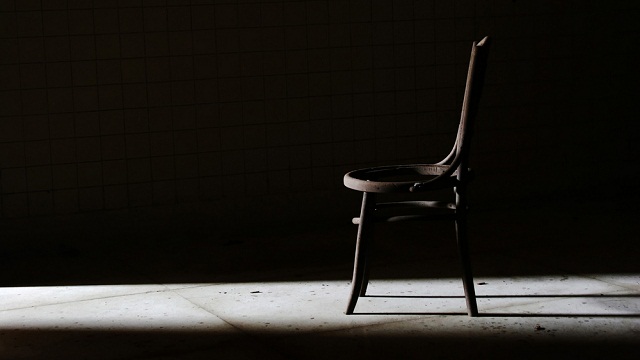Why Did the US kill ‘Adnan al-Qadhi?

US officials continue to maintain as they have publicly for some time that in Yemen the US is only targeting the top 10-15 leaders of AQAP, whom it believes are actively plotting against the US and US interests in Yemen.
However, in order to kill these 10-15 individuals the US has carried – by my best estimation – somewhere between 37 and 52 drone and/or air strikes this year. That is 37 – 52 strikes in an attempt to kill 10 – 15 individuals in Yemen.
To me this suggests that one of two things is happening. Either A.) the drone and air strikes are not as accurately as anonymous US officials continually claim that they are or B.) the US is doing something much different than it maintains publicly.
I tend to agree with people like Micah Zenko, who has suggested that what the US is really doing in places like Yemen is acting as that country’s “counter-insurgency air force.”
And this brings me to the question I have been wrestling with for the past month: Why was ‘Adnan al-Qadhi targeted?
I wrote about the strike back when it happened here at Waq al-waq, and Adam Baron has written the best piece on the strike I’ve seen (in either English or Arabic) he was also kind enough to work up a fascinating behind-the-scenes post for Waq al-waq.
Thanks in large part to Adam’s reporting we know more about this drone strike than we do about many that have taken place this year (although Joshua Foust’s fine piece this morning reminds us all that too often we traffic in assumptions rather than analysis when it comes to drones.)
But, the question remains: why was ‘Adnan al-Qadhi targeted and killed?
I don’t have perfect knowledge of AQAP – I don’t think anyone outside of the organization does – but I would not have put ‘Adnan al-Qadhi on a list of the top 10-15 leaders of AQAP. And I think one would be hard pressed to make the argument that he was actively plotting against the US.
After all al-Qadhi, despite some suspicions and a previous arrest, was operating in the open – unlike other top AQAP figures – and was killed as he was driving near his home village in Sanhan, which of courses raises questions about why he wasn’t arrested.
It is one thing to use a drone to kill a terrorist who can’t be captured it is something entirely different to use a drone because it is politically expedient.
From all the available public information it appears as though al-Qadhi was a man with questionable contacts. But does that mean he should have been killed?
What exactly is the US doing in Yemen and why is it targeting people like al-Qadhi? Did anyone ever make a case that al-Qadhi was actively targeting the US?
In the month since his death I’ve heard a number of theories about why al-Qadhi was killed and nearly all of them suggest his death had more to do with domestic politics in Yemen than it did with AQAP or transnational terrorism.
For me this gets at one of the fundamental flaws in what I see as the current US approach to Yemen: it appears to be overly dependent on foreign intelligence, which can lead to some horrendous mistakes (see the 2010 strike that killed the deputy governor of Marib and which JSOC later said they had been “played”).
And the US still seems too quick to fire first and ask questions later. Has the US grown so concerned about a terrorist attack that it is willing to kill suspected bad guys based on inconclusive evidence?
And how much certainty does the US need to have before someone pulls the trigger (pushes the button)? Is a 30% chance enough to green light a strike? 50%? 80%? Where is the line?
For me this is a troubling case because al-Qadhi almost certainly had contacts within AQAP, but contacts alone don’t necessarily mean he should die. Do they? And certainly contacts don’t necessarily equate to membership in AQAP.
Indeed, the Yemeni government even used him as a mediator with AQAP earlier this year. But do those contacts – whatever they were – mean that he is fair game for US drones?
What sort of checks did either JSOC or the CIA use to convince themselves that he was actively targeting the US? Or is that criteria only something for public consumption that is all but ignored when it comes to deciding on whether or not to take the shot?
There are a lot more unanswered questions here. How exactly does the US decide to kill a person and based on what intelligence. Is that collected by US agencies or provided by foreign agencies, and if the latter where did they get it? Does the US double-check their reporting methods?
But in the end I’m still left with my original questions: Was ‘Adnan al-Qadhi a bad guy? Maybe, maybe not.
Did he deserved to die because the US couldn’t prove that he was not a bad guy?





